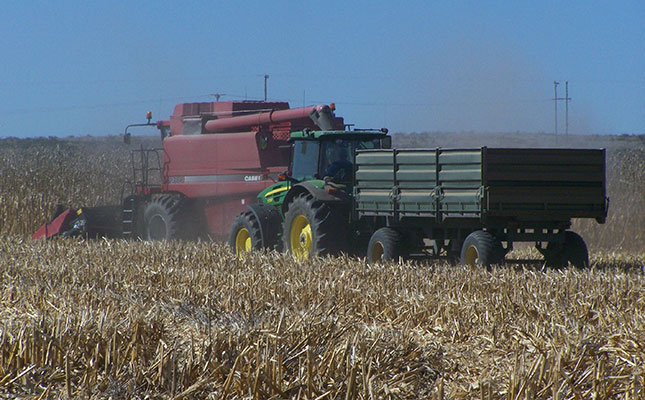
Photo: Annelie Coleman
The downward adjustment of fuel prices for January is not expected to bring much respite for farmers and consumers, according to Dawie Roodt, chief economist at Efficient Group.
Roodt explained that the 71c/l and 68c/l decrease in the 93-octane and 95-octane petrol price respectively, and the 67,80c/l and 69,80c/l decrease in the 500ppm and 50ppm diesel price respectively, were “minute” in comparison with the extensive price spikes seen last year.
“Prices remain high, with the latest adjustment merely taking us back to where we were in November price-wise. Prices increased by almost R6/l between January and December 2021.”
He added that it would take some time before the downward adjustment would translate into any real benefits for consumers and farmers, as the full impact of the price hikes in November and December were still not visible in the economy.
In addition, consumer spending will remain under pressure because of the high travelling costs people incurred during the holiday period.
Henk van de Graaf, TAU SA’s regional chairperson for the northern region, welcomed the reduction in fuel prices.
He said TAU SA had received many complaints from farmers about the very significant increases in fertiliser and other input costs, which upon further investigation, were found to be primarily the result of fuel and transport cost hikes.
He said the current reduction in fuel prices should translate into more affordable prices for certain inputs within the next week, and urged farmers to report incidents where this did not happen, so that it could be taken up with suppliers and agricultural outlets.
According to analysts, the monthly fuel price adjustments were driven by the import parity price (Basic Fuel Price), which responded to changes in the rand/US dollar exchange rate and international prices of petrol, as well as price fluctuations of crude oil.
The average Brent Crude oil price decreased from US$83/barrel (about R1 311/barrel) to US$76/ barrel (R1 200/barrel) during the period under review, primarily because of the US’s announcement that it would release up to 50 million barrels form the strategic petroleum reserve to boost supply.
The emergence of the Omicron variant of COVID-19 also prompted concern about new restrictions on the movement of people, with fears that this could reduce demand for oil, according to the department.
Maree said he expected fuel prices to remain relatively stable over the next few months, except in February when the new fuel levy would be announced, which would probably result in another price hike, as had happened in previous years.
Taxes and levies accounted for roughly 33% or R6,67 of the petrol price in December, according to a report by Statistics South Africa.
According to Roodt, fuel prices were likely to start increasing again from the middle of the year, due to the depreciation of the rand against other major international currencies.
“The rand is bound to weaken from June when we move from a positive to negative trade cycle, primarily because of the exporting of minerals. The weakening of the rand should have a greater impact on fuel prices than the expected decline in international oil prices,” he added.











